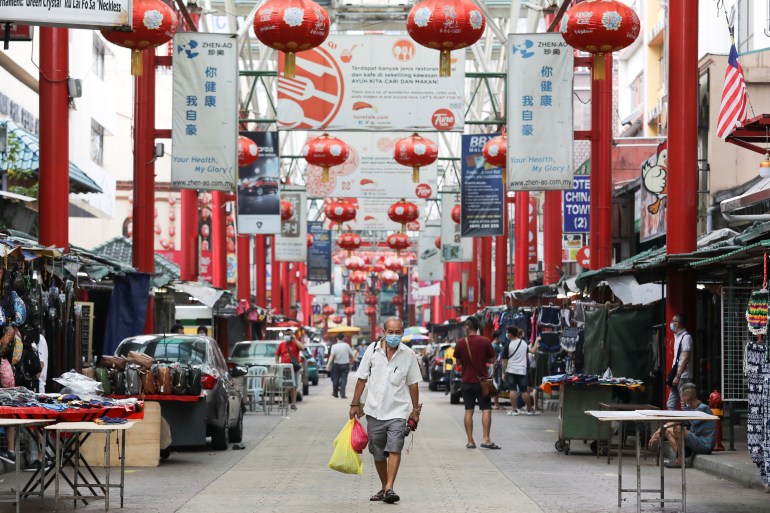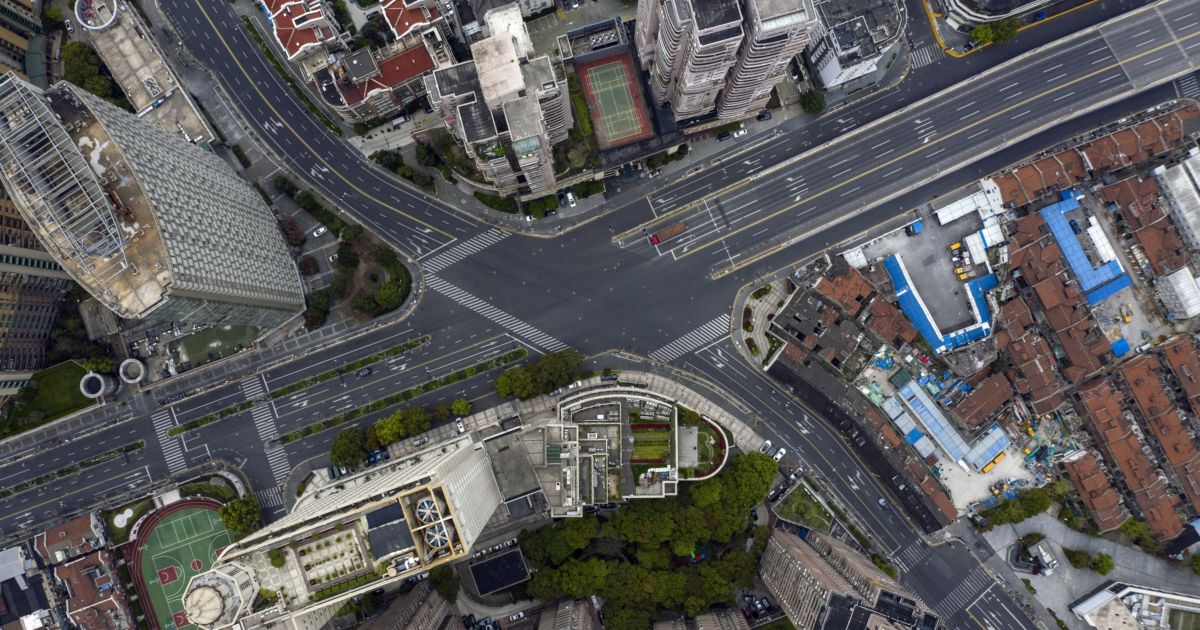Hong Kong, China – When greater than 26 million Shanghai residents had been despatched into lockdown final week, restaurateur Cotton Ding’s coronary heart sank.
“We’ve got been combating the pandemic since 2020, and for the previous two years we’ve skilled plenty of modifications,” Ding, who owns two eating places positioned in historic colonial villas within the coronary heart of the previous French Concession, informed Al Jazeera.
“We had been lastly getting again on our toes, enterprise had recovered and was doing a bit higher, then the current outbreaks and lockdowns hit.”
Spring would usually be Ding’s busiest interval, with visitors profiting from her leafy patio to benefit from the balmy Shanghainese climate.
As a substitute, enterprise has been “a complete catastrophe”, she mentioned, because of the lockdown, which authorities this week prolonged to cowl the whole metropolis indefinitely after a two-phase lockdown launched on March 28 did not deliver coronavirus circumstances underneath management.
“Normally we rent and prepare new employees to cater for this time, improve our furnishings settings and produce the backyard to life,” she mentioned.
“Now we’ve been ordered to close our doorways and we anticipate that we’ll be closed for many of April.”
Ding mentioned she has no thought when she is going to have the ability to reopen or return to full capability.
“The concern has not allowed me to sleep properly in any respect,” she mentioned.

Because the begin of March, authorities in China’s most populous metropolis have reported greater than 114,000 circumstances, far exceeding the nationwide caseload of the earlier two years. On Thursday, Shanghai recorded 19,982 circumstances, its highest day by day determine but.
Chinese language officers have described the outbreak as “extraordinarily grim” and despatched tens of hundreds of healthcare staff to assist include infections within the metropolis, together with navy personnel.
Nonetheless, authorities have but to report any deaths within the metropolis – an anomaly that has fuelled scepticism about China’s official figures.
Amid the mounting financial toll of China’s zero-tolerance strategy to the virus, often called “dynamic zero COVID”, there are indicators that public endurance is carrying skinny.
Movies circulating on social media have proven residents struggling to purchase primary requirements like meals and water, because of the closure of supermarkets stay and overburdening of supply providers. Different residents have posted movies complaining about overcrowding and unsanitary circumstances on the metropolis’s mass quarantine centres, together with dirty shared bogs and an absence of showering services.
In a single video posted on-line, a lady might be seen begging to depart her compound to get her husband most cancers remedy. Residents additionally expressed outrage over the separation of COVID optimistic youngsters from their dad and mom, main authorities on Wednesday to bow to public stress and ditch the coverage.
A protracted shutdown of China’s financial powerhouse would have far-reaching financial penalties at house and additional afield. Shanghai is the nation’s most essential monetary and manufacturing base, with its output accounting for 4 p.c of China’s gross home product (GDP). Town can also be house to the world’s largest port, dealing with about 20 p.c of China’s exports abroad.
Xia Le, chief Asia economist at Banco Bilbao Vizcaya Argentaria (BBVA), informed Al Jazeera that the financial impression of the lockdown would rely upon its length.
“If the lockdown solely lasts for 2 months, say April and Could, it is going to trim China’s progress by 0.3-0.5 p.c this 12 months,” Xia mentioned. “If the lockdown lasts all through the third quarter, it is going to lower China’s progress by 1.5-2 p.c.”
Xia mentioned China can be unable to satisfy its 5.5 p.c official progress goal if the lockdown continued past June “even when authorities had been to deploy extra pro-growth insurance policies”.

Beijing has warned of robust headwinds dealing with the economic system this 12 months, together with the impact of the pandemic, though it has given no indication it intends to essentially alter its zero-tolerance strategy.
Exercise within the nation’s providers sector contracted on the quickest tempo in two years in March, in line with official Chinese language authorities information, with the non-manufacturing Buying Managers’ Index (PMI) falling to 48.4, from 51.6 the earlier month.
A personal sector survey paints an excellent bleaker image. Based on a report launched by Caixin on Wednesday, China’s PMI fell to 42 in March from 50.2 in February, the bottom degree for the reason that starting of the pandemic in February 2020.
“General, each manufacturing and providers actions weakened in March because of the epidemic,” Caixin Perception Group senior economist Wang Zhe mentioned in a press release. “Much like earlier COVID outbreaks in China, the providers sector was extra considerably affected than manufacturing.”
“Policymakers ought to look out for weak teams and improve help for key industries and small and micro companies to stabilise market expectations,” Wang mentioned.
As the remainder of the world learns to stay with the virus, China’s uniquely strict insurance policies have additionally raised questions on its competitiveness in a worldwide economic system the place pandemic restrictions have been largely consigned to historical past.
“Chinese language exporters will lose extra orders to their international opponents in an actual ‘open’ economic system,” mentioned Xia, the BBVA economist. “China is predicted to have much less international direct funding earlier than it reopens its economic system. Within the meantime, worldwide buyers would possibly change into much less fascinated with Chinese language property.”
Xia mentioned the zero COVID technique wouldn’t be sustainable in the long term.
“I’m not saying that they need to abandon this technique instantly, but it surely’s time to reassess the technique and make the change sooner or later,” he mentioned. “A wise transition plan will strike steadiness between saving lives and sustaining financial prosperity.”
Nervousness and stress
For Ding, the Shanghai restaurateur, the previous couple of weeks have been financially crippling.
“It has completely destroyed our money movement,” she mentioned. “As a small enterprise, we will be unable to pay our hire, employees and suppliers right away. It would take years for us to pay the money owed.”
Ding mentioned she is anxious for the welfare of her 50 staff, whose livelihoods she feels chargeable for.
“The uncertainty has induced them plenty of anxiousness and stress,” she mentioned. “I’m in touch with them day by day and so they inform me they’re fearful and feeling unsettled.”
Chinese language authorities have supplied some monetary help for companies, together with 140 billion yuan ($22bn) in tax aid and a three-month hire exemption for small tenants at state-owned entities.
“It’s a tiny fraction of our losses and in case you are not incomes something there isn’t a lot tax to pay in any case,” Ding mentioned.
“Sadly for me, each my areas are privately owned and I cannot obtain the exemption. I’ll attempt to negotiate a reduction with my landlords straight however as considered one of them was making an attempt to up the hire by 15 p.c lately it might be a tough deal.”







